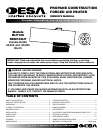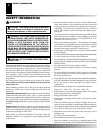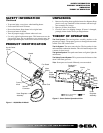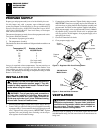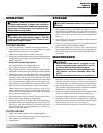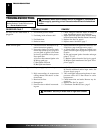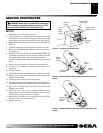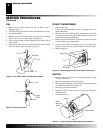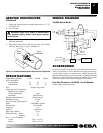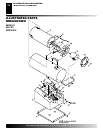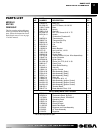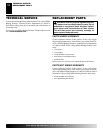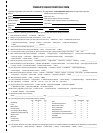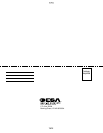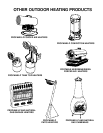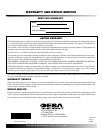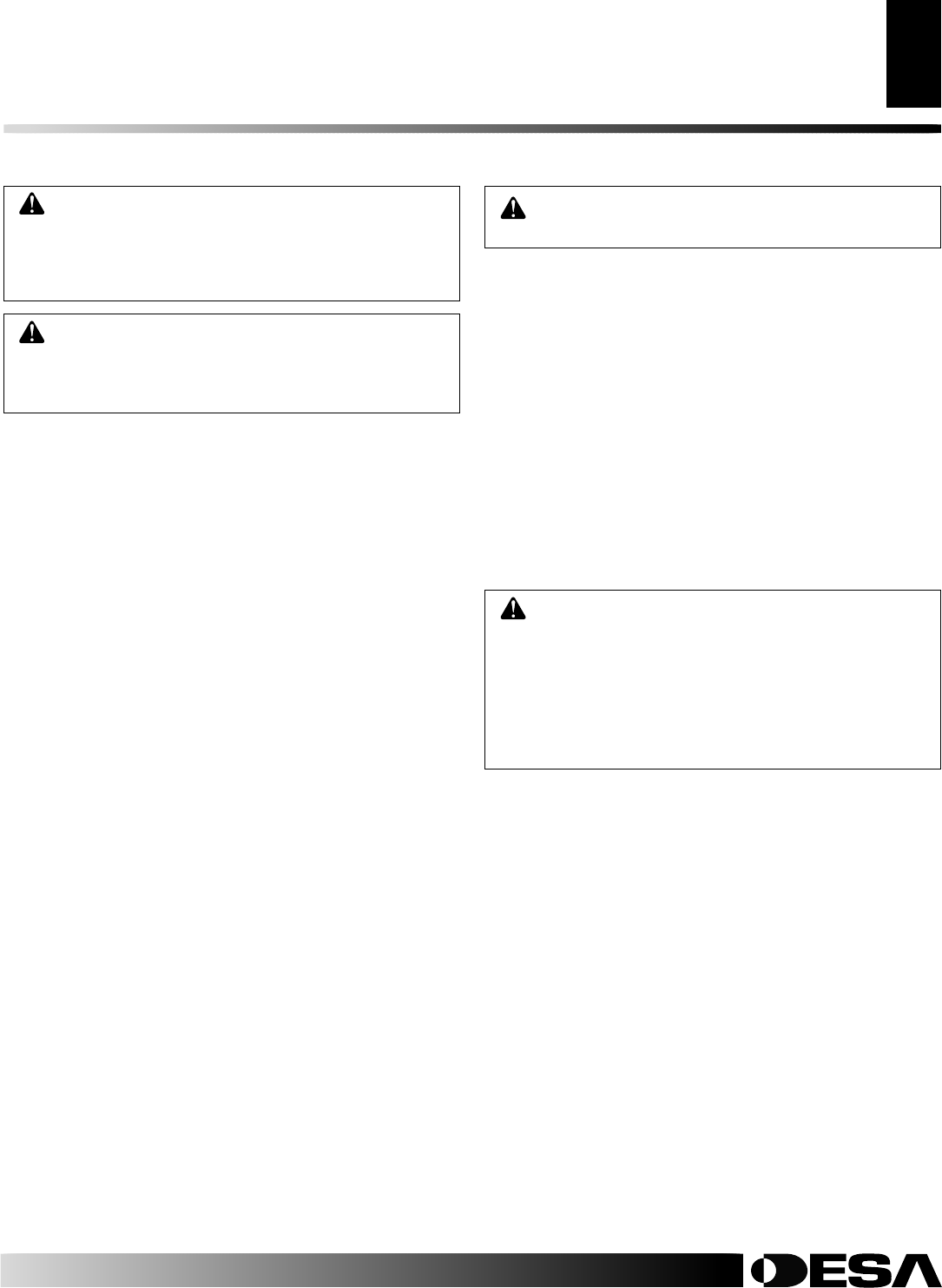
102370-01K
5
5
For more information, visit www.desatech.com
For more information, visit www.desatech.com
TO START HEATER
1. Follow all installation, ventilation and safety information.
2. Locate heater on stable and level surface. Make sure strong
drafts do not blow into front or rear of heater.
3. Make sure the control knob is in the OFF position.
4. Plug power cord of heater into a three-prong, grounded extension
cord. Extension cord must be at least six feet long, UL/CSA listed,
and of a proper size.
Extension Cord Size Requirement
Up to 100 feet long, use 16 AWG rated cord.
101 to 200 feet long, use 14 AWG rated cord.
5. Plug extension cord into a 120 volt/60 hertz, 3-hole, grounded
outlet. Motor will start. Fan will turn, forcing air out front of heater.
6. Open propane supply valve on propane tank(s) slowly.
Note:
If
not opened slowly, excess-flow check valve on propane tank
will stop gas flow. You may hear a click from the excess-flow
check valve closing. If this happens, reset the excess-flow check
valve by closing propane supply valve and open again slowly.
7. Press and hold in control knob. Turn counterclockwise to the
LOW position. Heater should ignite within a few seconds.
Note:
If heater fails to ignite, hose may have air in it. If so,
keep control knob pressed and wait 20 seconds. Release auto-
matic control valve button and wait 20 seconds for unburned
fuel to exit heater. Repeat step 7.
8. After heater ignites, wait 30 seconds. This activates the auto-
matic control system. Release the control knob.
9. When burner remains lit, set heater at the desired heat level by
turning the control valve counterclockwise. If burner goes out,
turn off gas. Turn control knob fully clockwise to the lowest
position. Check fuel supply. If adequate fuel is available, re-
start heater beginning at step 1.
TO STOP HEATER
1. Tightly close propane supply valve on propane tank(s).
2. Wait a few seconds. Heater will burn gas left in supply hoses.
3. Turn control knob to the OFF position.
4. Unplug heater.
OPERATION
WARNING: Follow the minimum fresh, outside air
ventilation requirements. If proper fresh, outside air
ventilation is not provided, carbon monoxide poison-
ing can occur. Provide proper fresh, outside air ven-
tilation before running heater.
WARNING: Review and understand the warnings
in the
Safety Information
section, page 2. They are
needed to safely operate this heater. Follow all local
codes when using this heater.
OPERATION
STORAGE
MAINTENANCE
STORAGE
1. Store propane tank(s) in safe manner. See Chapter 5 of Stan-
dard for Storage and Handling of Liquefied Petroleum Gases,
ANSI/NFPA 58 and the Propane Installation Code CAN/CGA
B149.2. Follow all local codes. Always store propane tanks
outdoors.
2. Place plastic cover caps over brass fittings on inlet connector
and hose/regulator assembly.
3. Store in dry, clean, and safe place. Do not store hose/regulator
assembly inside heater combustion chamber.
4. When taking heater out of storage, always check inside of
heater. Insects and small animals may place foreign objects in
heater. Keep inside of heater free from combustible and for-
eign objects.
CAUTION: Disconnect heater from propane sup-
ply tank(s).
MAINTENANCE
WARNINGS
• Never service heater while it is plugged in, con-
nected to propane supply, operating, or hot. Se-
vere burns and electrical shock can occur.
• Keep heater clear and free from combustible mate-
rials, gasoline, and other flammable vapors and
liquids.
• Do not block the flow of combustion or ventilation air.
1. Keep heater clean. Clean heater annually or as needed to re-
move dust and debris. If heater is dirty or dusty, clean heater
with a damp cloth. Use household cleaners on difficult spots.
2. Inspect heater before each use. Check connections for leaks.
Apply mixture of liquid soap and water to connections. Bubbles
forming show a leak. Correct all leaks at once.
3. Inspect hose/regulator assembly before each use. If hose is highly
worn or cut, replace with hose specified by manufacturer.
4. Have heater inspected yearly by a qualified service agency.
5. Keep inside of heater free from combustible and foreign ob-
jects. Remove motor and other internal parts if needed to clean
inside of heater (see Service Procedures, page 7).
6. Clean fan blades each season or as needed (see Fan, page 8).



